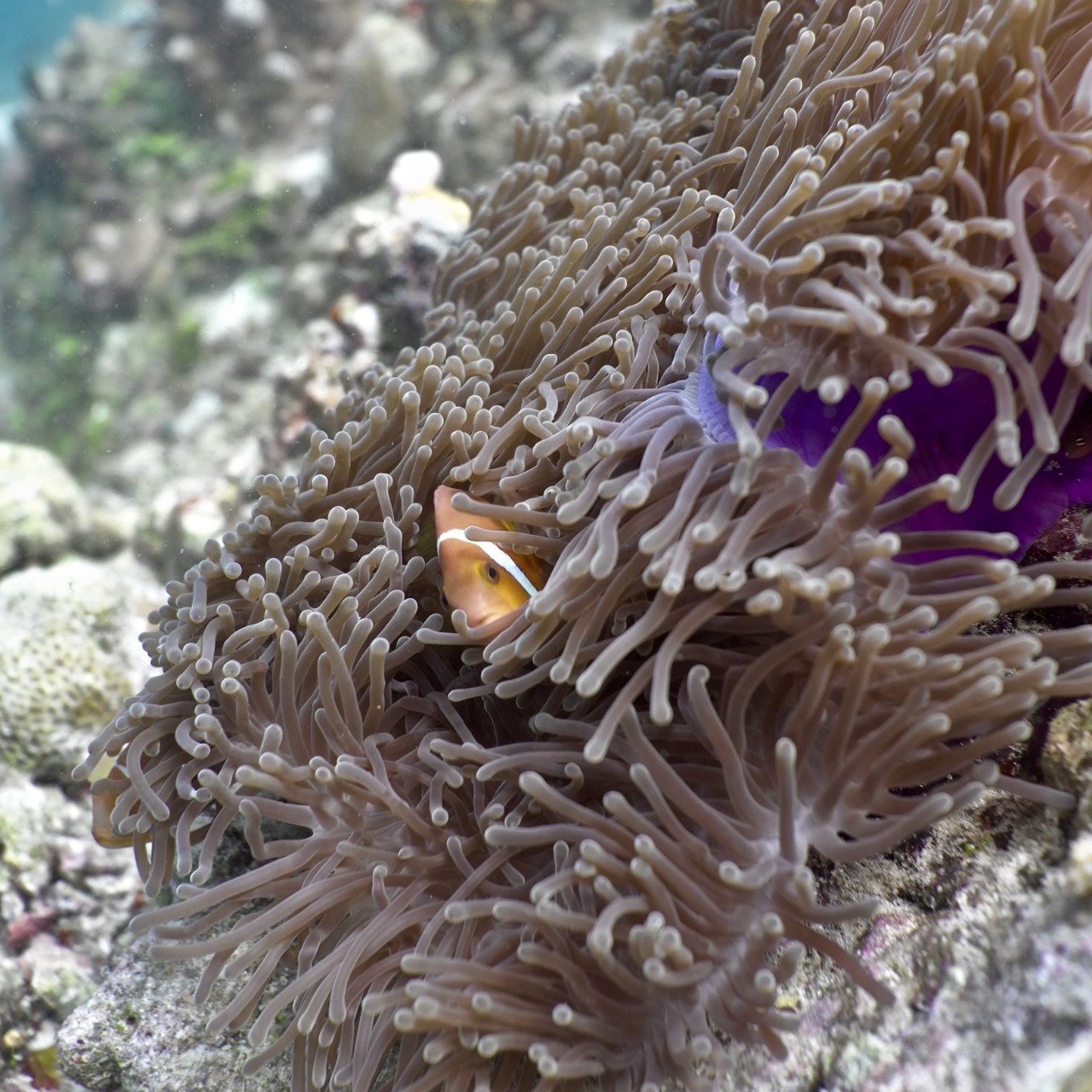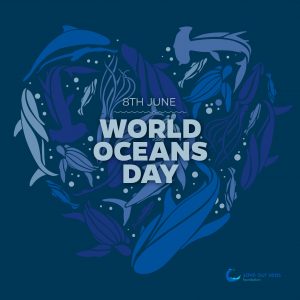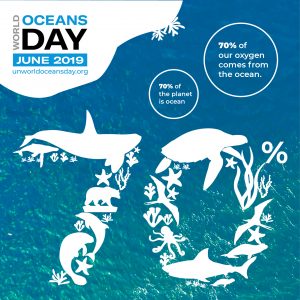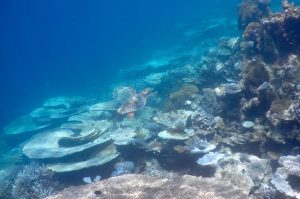World Oceans Day: 3 Tips to protect our oceans from home

By Valentina, MSc in Marine Systems and Policies

(Photo: https://saveourseas.com)
On June 8th, the world gathers to celebrate World Oceans Day, an initiative aiming to raise awareness on the oceans’ role in our everyday life and to promote individual and collective action to protect and use marine resources sustainably.
World Oceans Day also supports a global movement to call on world leaders to establish a network of marine protected areas covering 30% of the global oceans by 2030, under a conservation goal known as “30×30”.
In the first part of this blog post, you will learn a little bit more about World Oceans Day and the events you may attend virtually as part of this date. The second part of this post contains an introduction to the role of the oceans in our day-to-day life, the current threats that marine ecosystems are facing and their effects. This section highlights the importance of engaging in the celebration of World Oceans Day.
Finally, I will give you some helpful tips to become part of this conservation movement and become an ocean leader from home!
1. World Oceans Day: History
Back in 1992, at the Global Forum in Rio de Janeiro, the Government of Canada, through its Oceans Institute, proposed the concept for a “World Ocean Day” in the framework of the event “Oceans Day at Global Forum – The Blue Planet”. As a result, the United Nations General Assembly issued a Resolution in 2008 officially recognising June 8th each year as World Oceans Day.
Since then, World Oceans Day has become a global celebration that by 2019 comprised more than 2,000 events in 140 countries.
2020 World Oceans Day version is featuring the theme “Innovation for our ocean”. The non-profit organisation Oceanic Global (partner to the United Nations for this year’s World Oceans Day) is hosting the date’s main event featuring ocean conservation leaders such as Sylvia Erle and Jean-Michael Cousteau. You can virtually attend the event by registering in the following link: https://oceanic.global/projects/world-oceans-day-2020/
Other exciting events will take place from June 8th onwards including webinars and workshops covering a wide variety of topics from marine-science policy-interface, photo competitions and deep-sea exploration. A full list of events can be found here: https://unworldoceansday.org/events-map
The following list is a selection of personal highlights for the events of World Oceans Day and the links to their registration:
- Tuesday, June 9th: “Marine Plastics”, organised by One Ocean Hub: https://unworldoceansday.org/event/marine-plastics
- Tuesday, June 9th: “Marine Science-Policy Interface”, organised by the Deep Ocean Stewardship Initiative -DOSI-: https://www.unworldoceansday.org/event/marine-science-policy-interface-roundtable
- Wednesday, June 10th: “Wonders of the Deep”, organised by the Deep Ocean Stewardship Initiative -DOSI-: https://www.unworldoceansday.org/event/wonders-deep-sea
2. The role of the oceans in our day-to-day life
We tend to live every day, unaware of the impacts that our daily actions have on the health of the oceans and the marine ecosystems. This tendency may even increase when living in a city that is far from the coast. In consequence, we unplug from understanding the role of the oceans in our daily lives, and we are at risk of unintentionally harming marine ecosystems by being unaware of our connection with the sea.
World Oceans Day is the perfect date to remember the critical functions that the oceans deliver for the survival of humans, whether we live near or far from the shore. Marine ecosystems provide fishery resources that are a source for alimentation and economy. Coral reefs, beaches and wildlife attract tourism and protect coastal communities from natural disasters serving as natural barriers from storms and waves. For example, studies evidenced that after the 2004’s Indian Ocean tsunami, the most affected regions lacked healthy coral reefs, while the less impacted had alive corals protecting them.

(Image: unworldoceansday.org)
The ocean also serves as a giant “carbon sink” that since the Industrial Revolution in the 15th Century has absorbed almost half of the human-produced atmospheric carbon dioxide (CO2). In fact, the ocean absorbs twice the CO2 produced by the United States daily, and the Phytoplankton (microscopic algae in the water) absorbs the CO2 of four times the Amazon rainforest in a year.
The current environmental threats that marine ecosystems are facing:
Human activities are negatively affecting all the oceans’ valuable functions. These activities include the following: An increasing demand for fossil fuels deriving in excessive emissions of greenhouse gases into the atmosphere (mainly CO2), destructive fishing practices and overfishing, pollution from chemicals and plastics/microplastics, irresponsible tourism, wildlife capture and hunt, coastal development, and extractive activities for minerals and hydrocarbons.
As a student of the MSc Marine Systems and Policies, I approached the adverse effects that may derive from human activities impacting the health of the marine ecosystems and threatening our existence on the planet. As part of this course, I travelled to the Maldives to practice experiments to assess the health of coral reefs, and carry out social surveys to understand the effects of climate change and other challenges in the islands.

(MSc Marine Systems and Policies class 2020)
The extensive damage of the Maldivian corals surprised me. A massive bleaching event in 2016 killed reefs in shallow waters, and irresponsible tourism, pollution and harmful practices for coastal development hampered their recovery.
 (Maldivian reefs before 2016 bleaching (Photo: Sebastian Hennige))
(Maldivian reefs before 2016 bleaching (Photo: Sebastian Hennige))
During this trip, I witnessed how tropical coral reefs are highly fragile to climate change and display the perfect example of the threats that the oceans are currently enduring. Increased water temperatures might derive in corals expelling the algae living inside them remaining with a “bleached” appearance, and ultimately dying when failing to find new algae to provide them with energy. Also, corals find it challenging to grow their carbonate skeleton in a more acidic environment, hampering the recovery of the ecosystem and affecting all dependant species such as fish, and of course, coastal communities.
But coral reefs are only one example of the significant impact of human actions on marine ecosystems. Human actions affecting the planet’s climate derive in the rise of water temperatures, the ocean acidification, and the rising of sea levels. Ice sheets in polar regions are rapidly melting, and seagrass and mangroves are dying in warmer and polluted waters.
We are depleting fish stocks by overfishing and destructing their habitats, and we are not contributing to their recovery by polluting every time more the oceans with substances like microplastics. Moreover, the oceans are losing their capacity to absorb the excess of CO2 in the atmosphere, ultimately deriving in the planet’s temperature rising, wildlife species getting extinct, coastal communities moving inland, and the change of the lives of all of us.
- Tips to protect the ocean from home:
After understanding our daily impact on the marine ecosystems, it is normal not knowing where to start taking action, and we will often find ourselves wondering, what can I do to help the oceans?
We can all contribute from our homes to help marine ecosystems recover and build resilience and World Oceans Day is the perfect moment to start acting together!
Here are three tips (some simple, some less simple but still important) that you may try to be part of this oceans’ conservation movement:
- Reduce your carbon footprint:
Climate change and the excess of atmospheric CO2 are placing several and maybe the most pressing challenges to the oceans.
Reducing your carbon footprint is critical to fighting these challenges, and you may do this by reducing the time you spend and the distances travelling in aeroplanes and increasing your use of public transportation and bicycles in the city, when possible.
- Be a responsible consumer
When possible, buy the seafood certified as coming from sustainable sources that avoid the engagement in destructive fishing practices.
Also, avoiding plastics and microplastics is fundamental to protect marine ecosystems’ resilience. These elements do not degrade, and wildlife may eat them after confusing them with food which may block their stomachs or impede the respiration of other species like corals and mangroves.
 (Illustration: Larie Dianco)
(Illustration: Larie Dianco)
Finally, responsible handling of hazardous waste contributes to ocean conservation by identifying the correct way to dispose of batteries, kitchen oil, and medicines, and avoid that they end up in the coast through other waterways.
- Be a responsible tourist:
When travelling to coastal destinations, make sure you do not engage in activities that may harm the marine ecosystems such as buying wildlife or products affecting endangered species such as jewels made of corals. Also, avoiding hitting the coral reefs with your fins when snorkelling or scuba diving is very important, and using a coral-friendly sunscreen is another option that as a small action can make a difference!
Engage beach clean-ups, they are fun, and they help marine ecosystems. It is just as some say, “the more, the merrier”, which is especially true when removing litter from the water.

(Me after recovering a plastic straw in the ocean)
Remember that it does not matter if you live close or far from the ocean; your daily actions have an impact on our big and blue marine friend!
Happy World Oceans Day!

(Photo: Sebastian Hennige)
Follow us on Instagram or Twitter for more updates from our Geosciences students!
(World Oceans Day (Photo: Sebastian Hennige))
(World Oceans Day (Photo: Sebastian Hennige))




1 replies to “World Oceans Day: 3 Tips to protect our oceans from home”